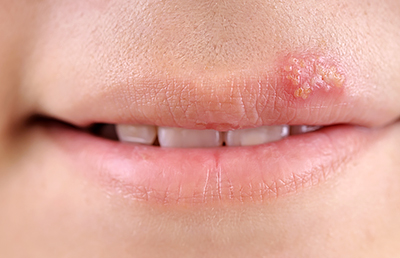Cold sores? Blame your genes!
Herpes simplex virus type 1 (HSV-1) is most commonly known for cold sores. At the University of Edinburgh in Scotland, HSV-1 was studied to find which genes were responsible for producing the protein that prevents the virus from becoming active. After determining the protein, a study was conducted with twenty blood samples of people with cold sores. It was found that IL28B was mutating more frequently in people with cold sores. The disadvantage of IL28B is that it leaves the body’s immune system vulnerable to fight sores. IL28B contributes to 20% of people who regularly get cold sores, they can treat the sore with “acyclovir.” If herpes simplex type 1 goes untreated it can cause severe conditions like infections in the eyes, brain and the genital tract. This is were further treatment involving IL28B might be used to help the minority, whose genes are more susceptible to HSV-1.
